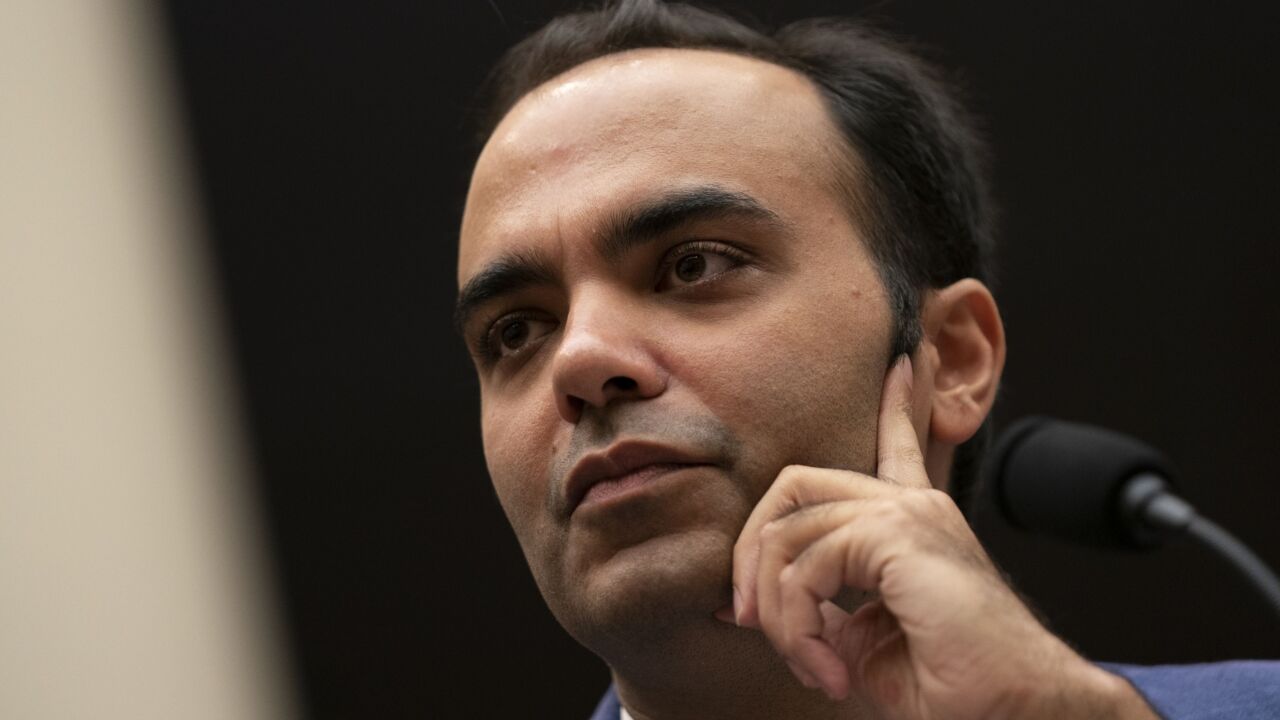Digital marketing companies will face
The new rule is concerning to financial institutions in light of their increased reliance on digital marketing to reach consumers. According to a
Brian Reilly, managing director at Bankbound, a digital marketing agency that focuses on community banks, says he has seen a rapid acceleration of marketing investment away from traditional channels and into digital channels over the past couple of years.
The CFPB's interpretive rule, which says that digital marketers can no longer claim an exemption from the Consumer Financial Protection Act and are liable for "unfair, deceptive or abusive acts or practices," or UDAAP, raises two questions: What led to this heightened scrutiny and what can financial institutions — and the digital marketing firms they turn to — expect?
The Consumer Financial Protection Bureau said that digital marketers involved in the development of content strategy can be liable for "unfair, deceptive or abusive acts or practices."
"This is a shot across the bow at technology companies," said Rafael DeLeon, senior vice president of industry engagement at the risk management and compliance software firm Ncontracts and former director for banking relations in the Office of the Comptroller of the Currency.
"The Biden administration has repeatedly told us that its goal is to promote equitable access to safe and affordable financial services," DeLeon said. "It expanded the definition of what is considered an 'abusive' practice under UDAAP and promised to work with the states for 'vigorous' fair-lending enforcement. Now we're seeing the results of that action."
In 2021 the agency
"Digital redlining is the next logical step in its enforcement activities," DeLeon said. "More financial services activities are conducted online, and reaching those audiences can inadvertently result in discrimination."
Ellen Berge, a partner at Venable and a member of the law firm's advertising and marketing group, noted the CFPB announcement in
"This more recent rule about digital marketers and their role in carrying out pricing or advertising initiatives could be a component of that theme," Berge said.
On Aug. 11 the Federal Trade Commission said that it was seeking comment on harm resulting from commercial surveillance and that it was exploring whether new rules are needed to protect people's privacy and information.
"Consumers only know a small portion of what is being collected about them, according to the FTC," Berge said. "When you couple that with some of the newer, advanced behavioral targeting to deliver advertisements, this all seems to fit together."
Jonathan Kolodziej, a partner at Bradley Arant Boult Cummings, also points out that the CFPB has taken steps under the current administration to regulate the use of algorithms, machine learning and other advanced technologies.
"It seems likely this is another step on that front," he said. "This will pave the path for the CFPB to enforce the law against digital marketers and, even if they never do take any enforcement actions, it may get some people to proactively change their behavior in response."
The prospect of being subject to CFPB scrutiny means digital marketing companies will have to reexamine some of the relationships and services they provide, said Berge.
That could mean ensuring compliance management systems are in place to stay aligned with fair-lending laws. DeLeon also recommends these companies assess whether the audience filters they use unintentionally exclude protected classes from seeing online ads.
"Financial institution partners will want proof that their digital marketing partners are proactive when it comes to preventing discrimination," he said.
Financial institutions will have to scrutinize vendor management and oversight more closely than before, DeLeon said.
"Does your digital marketing partner understand fair-lending laws? Does it have tools to measure how choosing specific audience characteristics can inadvertently result in discriminatory behavior? How does it manage regulatory change?" are questions DeLeon suggests banks should be asking. "In the past, there has been a lot of trust — 'Who are you partnering with?' 'Oh, I heard they have a good reputation.' "
Digital marketing firms that work with financial institutions pointed to the features they have that fit these needs.
Fintel Connect in Vancouver, Canada, referenced its Fintel Check, a compliance management system that uses artificial intelligence to flag to banks where their products are being promoted and identifies content outside of regulation.
"As a marketing technology provider in the financial services space, our approach has been to arm our clients with the tools they need to successfully market their products in line with CFPB requirements," the company said in a statement.
DeepTarget in Huntsville, Alabama, announced in August it would use intelligent targeting technology from the AI engineering company CognitiveScale. The company said part of the reason it chose CognitiveScale was its focus on trust and governance and its efforts to ensure its technology is not used for unfair or deceptive marketing purposes.
"DeepTarget is committed to providing community financial institutions the innovative technology they need, including trusted AI-based solutions, so that they can utilize these with that confidence that they are aligned with CFPB guidelines and rules which ultimately protect consumers against unfair and deceptive practices," the company said in a statement.







